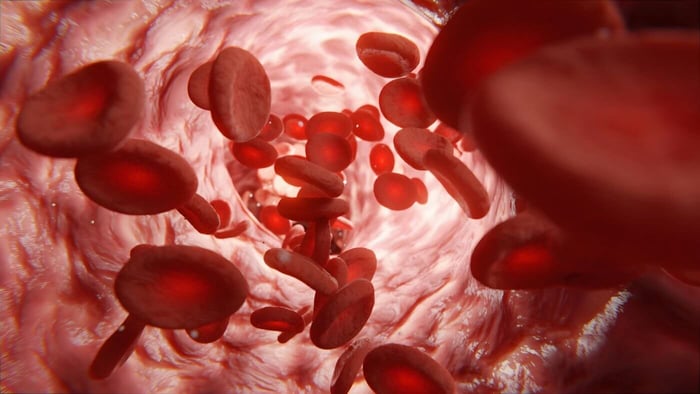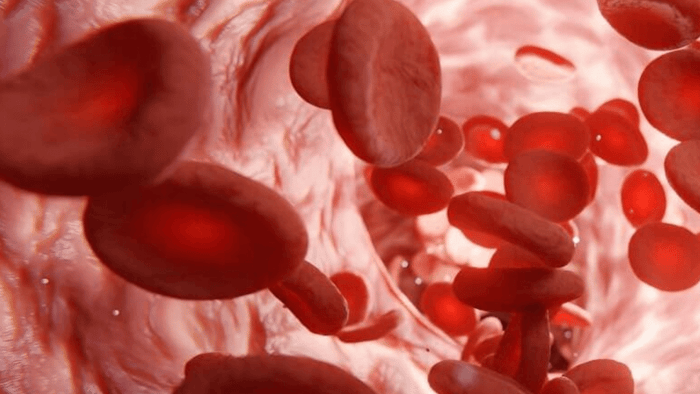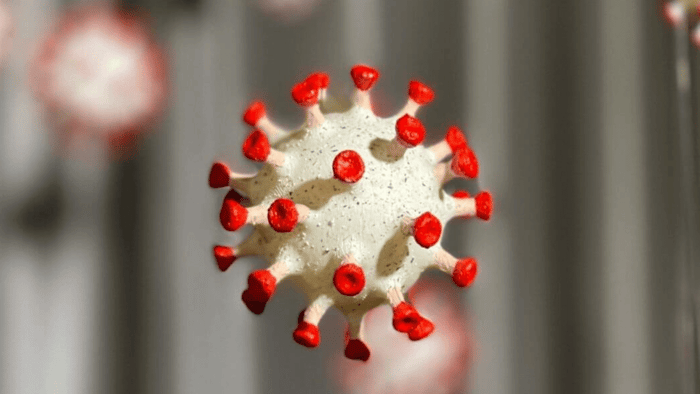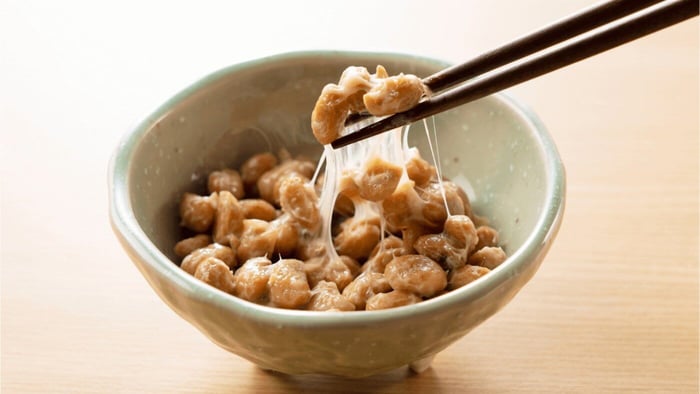Table of Contents
Nattokinase is a fibrinolytic enzyme extracted from natto, a traditional Japanese food made from fermented soybeans. It’s known for supporting cardiovascular and circulatory health by helping break down fibrin, a protein involved in blood clot formation.
Compared to commonly prescribed drugs like statins, nattokinase causes far fewer side effects, making it a popular natural alternative for healthier blood flow and better heart outcomes.
While it’s safe for most people, some may experience mild nattokinase side effects, especially if taken with other medications. Understanding even rare nattokinase side effects helps make sure that you’re starting a new supplement regimen safely and effectively.
Potential Side Effects
Nattokinase is generally safe for most, but some may experience mild nattokinase side effects due to the enzyme’s effects on blood clots. Others may not tolerate it as well as expected, especially if they already have underlying conditions.
Here are some reported concerns to be aware of, with the understanding that even mild nattokinase side effects aren’t common:
Mild stomach discomfort or nausea: Nattokinase is derived from fermented soybeans. For some, fermentation byproducts from Bacillus subtilis, the strain used in nattokinase, can cause stomach upset. It can also cause issues in those sensitive to soy; to minimize risk, choose a natto supplement that’s not derived from soy, such as Toku Flow. (1)
Dizziness or lightheadedness: Nattokinase may help lower systolic blood pressure by improving circulation and relaxing your blood vessels. (2) While this may reduce the risk of hypertension, in some people, it can cause their blood pressure to dip too low.
Increased risk of bleeding or bruising: Nattokinase is a thrombolytic that thins the blood and helps break down clots, so it can amplify the effects of blood-thinning medications. This can make bruising or bleeding more likely in those on existing medications. (3)
Unlike statins’ potential effects on the liver, current research shows no evidence that nattokinase does the same. In fact, one animal study showed that it may have liver-protective effects.
Researchers tested whether high doses of nattokinase could protect the liver from damage caused by a harmful chemical. They found that nattokinase lowered liver enzymes that signal liver problems, reduced inflammation, and boosted defenses to help prevent liver cell death. (4)
This sets the stage for more studies about reducing liver inflammation in toxin-related liver conditions like alcohol use disorders. (5) The evidence so far indicates nattokinase is safe, even beneficial, for the liver.
Allergic Reactions
Since nattokinase is derived directly from a fermented soybean product, anyone with a soy or soybean allergy should avoid nattokinase. At Toku Health, we offer a potent nattokinase supplement that has been tested for the presence of soy and is confirmed soy-free.
Possible nattokinase side effects related to an allergic reaction include:
Shortness of breath
Skin rash or hives
Itchiness or swelling
Tightness in the throat
Stomach cramps, nausea, or vomiting
In rare cases, soy consumption in those with a soy allergy may cause anaphylaxis. (6) This can look like swelling in the face or throat, rapid heartbeat, dizziness, and difficulty breathing. Seek emergency attention immediately in case of anaphylaxis.
If you’re not aware of a soy allergy but are experiencing any of the symptoms above after starting nattokinase supplements, stop taking them and talk to your healthcare provider.
Interactions With Medications
Nattokinase can interact with medications like anticoagulants, blood thinners, and antihypertensives. Because nattokinase thins the blood and helps break down clots, combining it with drugs like warfarin may increase the risk of excessive bleeding or bruising. (7)
Its blood pressure-lowering effects could also amplify those of antihypertensive medications, potentially causing dizziness as your blood pressure dips too low.
That’s why it’s so important to talk to your doctor before starting nattokinase, or any dietary supplement, if you’re currently taking medications. This ensures safe use and helps prevent harmful interactions or nattokinase side effects.
It’s also important to note that some who start taking nattokinase for heart and circulation support may avoid needing anticoagulants or blood pressure drugs altogether.
In Japan, where fermented foods like natto are a regular part of the diet, studies show lower rates of heart disease and stroke. (8) That’s real evidence that you can take control of your cardiovascular health naturally.
Read Next: Nattokinase for Spike Protein Detox: How It May Aid Recovery
The Risks of Ignoring Heart Health
Ignoring your heart health early can lead to serious, potentially life-threatening conditions like thrombosis, heart attack, and stroke. High blood pressure, clogged arteries, and irregular heart rhythms often develop silently, causing irreversible damage over time.
Nattokinase is at its best when it’s used as an early support for improved cardiovascular health. As an enzyme with anti-inflammatory and fibrinolytic activity, nattokinase helps dissolve blood clots before they create blockages and cardiovascular concerns.
When coupled with lifestyle changes and regular health checks, supplements like nattokinase can help you take care of your heart now and prevent possible complications later.
Toku Flow is a daily supplement with 10,800 FU for natural, multi-functional cardiovascular support. It combines soy-free nattokinase with vitamin K2 and beta-glucan for balanced cholesterol, optimal blood pressure, and more without the side effects of pharmaceuticals.
FAQs
Who should not take nattokinase?
Nattokinase isn’t recommended for anyone allergic to soy foods, as it’s derived from fermented soybeans. To reduce risk, it’s best to select a nattokinase supplement that is tested for the presence of soy and confirmed to be soy-free, like Toku Flow.
People currently taking blood-thinning medications like anticoagulants or antiplatelets, or those with bleeding disorders, should avoid nattokinase due to the increased risk of bleeding. Anyone scheduled for surgery should stop nattokinase well in advance to reduce bleeding complications.
Pregnant or breastfeeding individuals should seek medical advice before taking any supplement, as research in these groups is limited. It’s best practice to start with a healthcare professional before starting a new supplement.
Is nattokinase safe to take daily?
Is nattokinase safe to take daily?
The U.S. Food and Drug Administration (FDA) hasn’t set official nattokinase guidelines, and ideal amounts vary by individual health and goals, but nattokinase is safe to take daily in most people.
Clinical trials typically have patients on 2,000-4,000 fibrinolytic units (FU) daily. One clinical study monitored high-risk heart patients at 10,800 FU per day for 12 months. (9) The result was reduced arterial plaque, better lipid profiles, and a slower progression of atherosclerosis.
Consistency matters, though. Most see health benefits after about 8 weeks of supplements rather than a single dose.
The Bottom Line
Nattokinase is a natural option for supporting circulation and sustainable cardiovascular health. For those hoping to protect their heart without immediately turning to prescription drugs, it offers a gentler path with fewer adverse effects.
Medications don’t have to be your only choice. While not a substitute for regular health checks, nattokinase can be a valuable addition to a heart‑healthy lifestyle.




